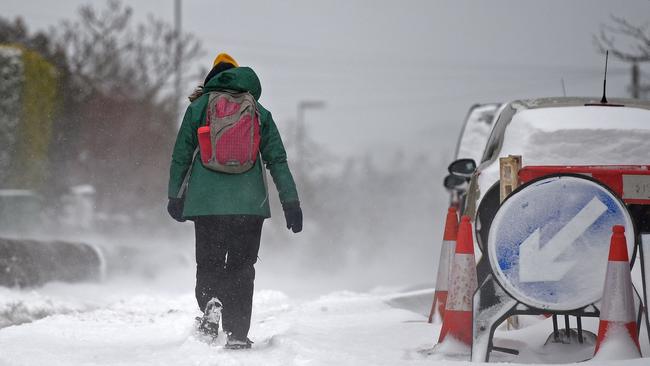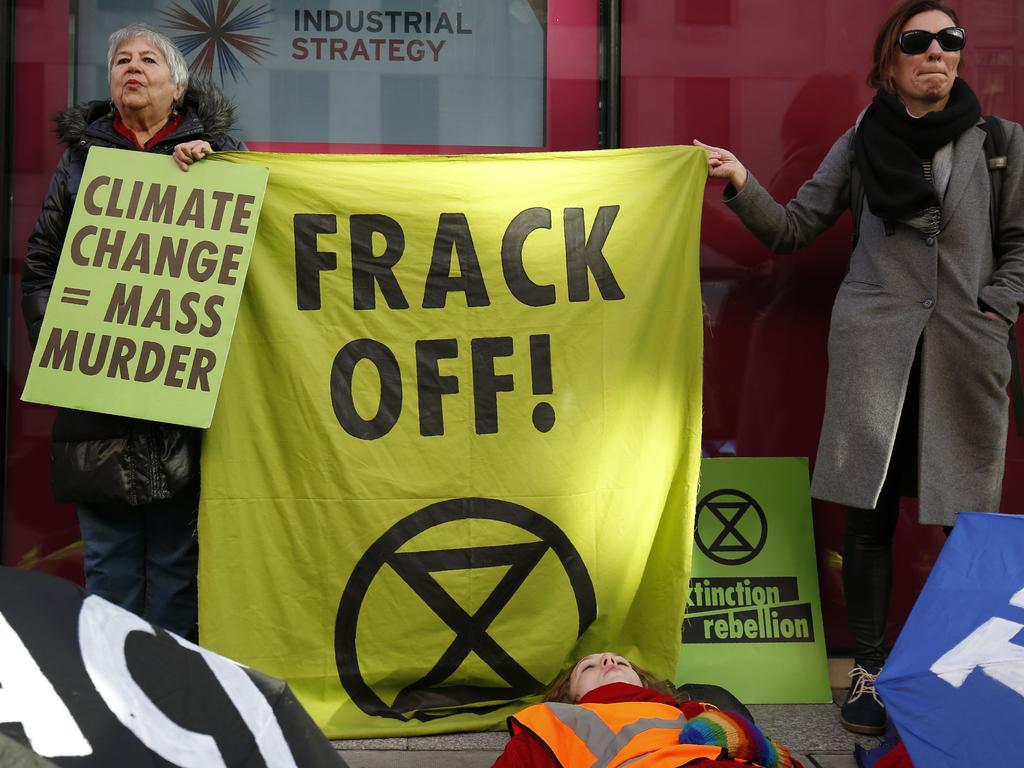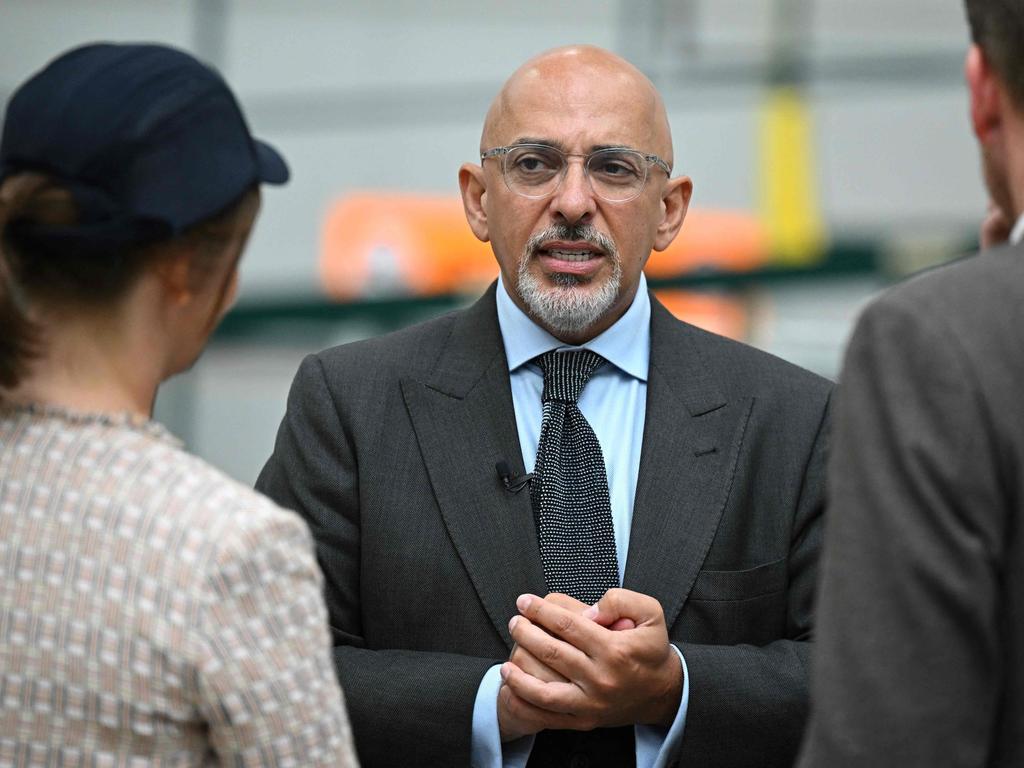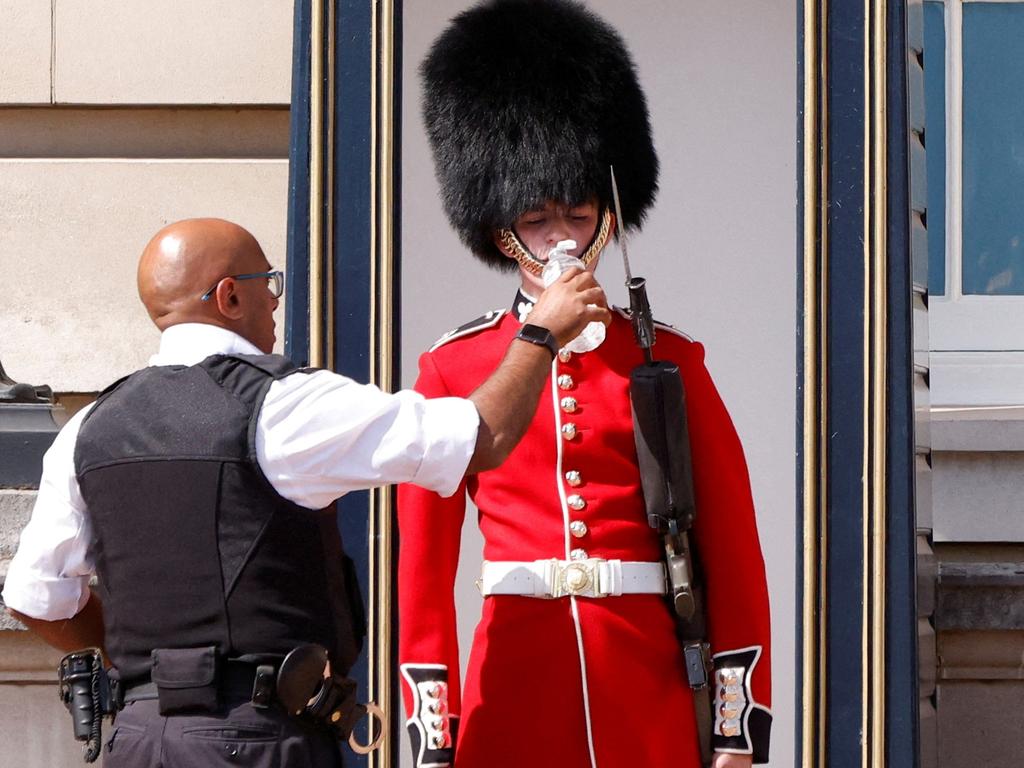British citizens battle to keep warm and keep eating
As Britain was set to have its third PM in four months after Liz Truss’s resignation, its people face a fight on the most basic level.

It’s been a mild start to autumn in England, yet even now Londoners huddle in unheated homes in their warmest jackets.
As Britain was set to have its third prime minister in three months after Liz Truss’s resignation on Thursday, its people face a fight on the most basic level. A country famous for its keep calm and carry on attitude is battling to keep warm and keep eating.
On her 43rd and penultimate day as prime minister, Ms Truss sacked her second cabinet minister in six days and was forced to deny her chief whip had quit amid a total breakdown of Conservative unity and discipline in the House of Commons.
Life in a tanking and struggling Britain is enormously frustrating. Rents have skyrocketed, mortgages have soared, essential food prices doubled. In some supermarkets, everyday items such as butter, cheese and milk have become the targets of desperate theft so staff tag them with magnetic security labels.
While the pulsating energy of the city is returning to something like before the pandemic, social unrest is stirring. Police turn up to only half of the burglaries reported, and just 5 per cent result in charges: Instead, the local bobby on the beat is consumed with countering gang knife crime.
Worker unhappiness about the cost of living is seeing an uptick in transport strikes and protests. The National Health Service is so dysfunctional that waiting times at hospitals often extend beyond a four-hour target. There is a backlog of more than six million patients waiting for treatment and face-to-face doctor appointments are almost non-existent.
A Sunday night roast has become a thing of the past with $10 too much to pay to run an oven for an hour when energy bills soar towards $10,000 for a two-bedroom home.
No one dares to speak of the colder months to come or the inevitable further price hikes for energy in the new year.
Joe Wilcox, a 68-year-old semi-retired plasterer, sits in a Kingston upon Thames pub and nurses a pint. “The last person to leave please turn the lights out … except there has been no light in British politics for some time,’’ he quips.
Where he would once spend a few hours chatting with locals and doing the crossword, he says he is now returning calls and setting up work to satisfy two goals: to keep active and warm in someone else’s place at their expense, and to earn more cash to pay the energy bills over winter.
London hairdresser Mihai Dumitrescu, 34, had come to the capital from Romania six years ago to train with the world’s best stylists. He wears his thickest puffer jacket so he can keep the heating off in between clients at his small salon.
He says the cost of his soaring electricity bill is not what terrifies him, but rather the public’s fear and their closing of their wallets because of the looming energy catastrophe. His plan B if he cannot survive this winter? Shut up shop and go somewhere else for brighter opportunities, maybe Canada.
“It is already three times worse than in the pandemic and it is getting very ugly,’’ he said.
“People’s necessities are to keep warm and have a full stomach. We have reduced what we can, but small businesses get no support; it feels like the UK has abandoned its young generation of entrepreneurs.’’
Talk to any financial analyst and their prognosis for Britain, the world’s sixth-largest economy, is grim. The economy has shrunk, its spending power has diminished, trade is flatlining, people are poorer than a decade ago.
Former Bank of England governor Mark Carney foretold of “two lost decades” because of Brexit and inflation. His predictions, caveated in that he supported Remain, is mirrored by former US Treasury secretary Lawrence Summers, who described Britain as a “submerging market”.
With energy costs so expensive, there won’t be any need to implement the threatened rationing.
A quarter of people in one poll have already turned off both their boiler and their heater preparing for a winter armaggedon.
Habits seen in the war-time generation are creeping back, like filling a thermos of tea to save boiling a kettle throughout the day. Budget-conscious families have long abandoned ironing clothes and even hats are sneaking back in fashionable areas to cover up hair that hasn’t seen a blow-dry.
Analysts say Brexit cost between 4 and 6 per cent of economic growth before the country was buffeted by the astonishing money free-for-all that was furlough in the shut-down of the British economy during Covid-19.
Then came Vladimir Putin’s evil war in Ukraine and the ensuing energy disaster.
Colonic hydrotherapist and nutritionist Andrea Okos, 52, who has been in Britain for 12 years after migrating from California to be closer to her Hungary-based parents is “taking it one day at a time’’, having opened a bespoke wellbeing business in December 2019, just before the pandemic took hold. She said the successive crises since 2016 had contributed to the malaise, but people had been “trained” in a way to cope.
“I was raised in Transylvania during communism and very early of a morning my mother would go to the shops because if she left it later, there would be no food. But I think my childhood was happier than today’s generation – you didn’t see the levels of anxiety and depression that we see in today’s youth.”
Figures from the British government and the World Bank show Britain is now imposing taxes at a level now seen for 70 years amid increasing regulations and a shrinking of the numbers of people in work. There is looming resentment by the working classes and the “squeezed middle” that their ever diminishing discretionary money is being gobbled up by ever more taxes to fund Ukraine’s fightback against Russia, while they miss out on increased support given to those on benefits.
Britain will now grapple with its fifth prime minister in six years, followed by a general election.
Ms Truss admitted she went too hard too fast in trying to stimulate growth without associated spending cuts, and her failed experiment – which saw the cost of the government’s borrowings rise as the markets became extremely concerned – appears to have sidelined tax cuts for many years.
All the while the property market ground to a halt as lenders pulled mortgage products.
Many Britons pin the current woes on divisive Brexit, with its additional layers of paperwork, costs and exodus of young enthusiastic eastern European workers as the beginning of the problems, but most point to the former chancellor Rishi Sunak’s generous handouts during the coronavirus lockdowns in 2020 and 2021.







To join the conversation, please log in. Don't have an account? Register
Join the conversation, you are commenting as Logout